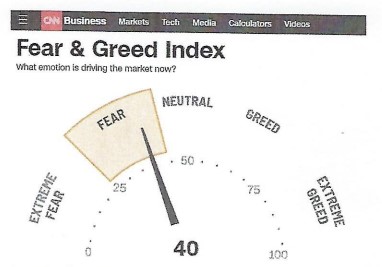Barron’s Big Money Poll is a must read for us. Large institutional money managers are an important source of demand for equity shares. So the poll gives us insight into what a key group of investors are thinking and doing. They make up part of Wall Street’s ‘consensus.’
Here are our key takeaways from the recently published poll:
– 53% of respondents are bullish and only 15% bearish. It is interesting that 15% is also the number of respondents who anticipate a recession. We remain bullish.
– 43% expect a soft landing for the U.S. economy in the next 12 months while 42% expect no landing. Either scenario is bullish in our view.
– The biggest risks to the market include resurgent inflation (29% of respondents), geopolitical turmoil (14%) and no reduction in interest rates (13%). Rich valuations and economic recession rated lower. We agree that resurgent inflation is our biggest risk.
– The highest priority issues for the next administration are debt reduction (48% of respondents), entitlement reform (20%) and tax reform (9%). We agree with the first two but would substitute controlling inflation as the third highest priority.
As for the rest of the poll, most managers offered a bullish tilt and are acting accordingly. This is music to our ears. Let the bull market continue.
Utilities and consumer staples stocks have been the best performers this quarter-to-date. You wouldn’t typically expect two very defensive sectors to lead in the heart of a bull market. Sector rotation and broader participation are healthy, but utilities leading? Is this a warning sign?
In the past, when utilities were leading the market, the S&P 500 was positive all eight times since 1995 over a three, six and twelve month time horizon (source: Bespoke Investment Group). So new highs for the utilities sector as they lead the market haven’t been a warning sign for the overall market. It is just unusual.
The CNN Fear and Greed Index is now flashing Fear (see below). Apparently the 5.5% drawdown at one point in April for the S&P 500 spooked many investors. They are definitely not complacent. This is a good sign since it is a contrary indicator. After all, if everyone is greedy, who is left to buy?

Source: CNN Business
THE COMING BOOM IN PROFITS
With corporate profits on an upswing, a major downturn in the economy could be far away. The bulk of companies have now reported Q1 earnings, and they show profit growth is picking up. Earnings per share for Q1 for S&P 500 companies now look to be up 5.2% from a year earlier according to FactSet. This is better than the 3.4% growth expected at the end of March, marking the strongest growth in about two years. Analysts now expect 9.8% profit growth for Q2, better than the 9.0% expected in March. And it gets better. Wall street analysts and strategists are expecting 11.1% profit growth for all of calendar 2024 and 14.0% for 2025. Admittedly, visibility is low looking out to 2025, but it shows that company executives are very upbeat.
Typically strong U.S. profit performance leads to continual economic expansion, which leads to strong consumer spending – the main driver of our economy. Consumer spending grew an inflation-adjusted 2.5% (annualized rate) in Q1, a good number.
What are company executives doing with all of this cash? Pretty much the usual but the priorities and allocations are company specific. In no particular order:
- Buybacks are back. Managers are feeling good about their prospects and spending like they mean it. Companies are stepping up purchases of their own shares. This is giving the stock market an extra boost. Buybacks were up 16% year-over-year in Q1. Big tech companies are leading the charge.
Corporate America thinks their fundamentals are fine. Apparently, they are not worried about interest rates or their balance sheets. Investors feel confident buying stock in companies that think their own shares are attractive.
- Companies are raising dividends with some initiating dividends for the first time, including Meta, Alphabet and Bookings Holdings (the renamed Priceline). Five of the Magnificent Seven now pay a dividend.
- Billions of dollars are being spent to develop artificial-intelligence capabilities led by many big tech companies.
- Hiring continues although job growth took a step down in April as the employment numbers showed. But there is a difference between a slightly weaker jobs report and the typ of job losses that could push the economy into recession. Companies stay in the mode of hiring workers when the profit outlook is good.
We are early in the profit cycle expansion which should support current share prices. In fact, accelerating profit growth rates can also lead to higher multiples. So we think we are in good shape. Profits should be booming soon.
